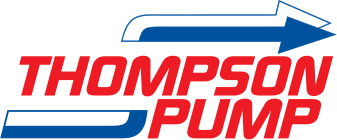Florida hurricane leads lift station innovation

THE CHALLENGE
Lift stations are among the things taken for granted until something goes wrong. Case in point: When hurricane Opal hit the Florida panhandle in 1995, a main utility company providing water and sewer services to the area suffered significant damage to several lift stations. Residents remained without power (despite backup generators being in place) because lightning strikes prevented the backup generators from functioning. The results were devastating; sewage escaped from the system, potable water sources were put in jeopardy, and wildlife was threatened. The utility company contacted Thompson Pump to design a more reliable solution than backup power generation. It had to be robust and provide 100% redundancy – backup for both power failure and pump failure and be independent of the electrical grid so as not to be affected by power surges. Additional requirements stipulated that the systems be self-starting, automatic priming, able to pump solids, and possess the capability to run unattended – especially during dire conditions such as hurricanes and floods. The need for backup systems is not limited to regions subject to hurricanes; super-cells, tidal surges, tornadoes, and infrastructure failure all pose significant risks to safe and sanitary wastewater management.
THE SOLUTION
Thompson possessed considerable experience supplying portable, diesel-powered pumps to bypass lift stations throughout North America. These were primarily used to provide temporary service during times when the lift stations underwent repair and scheduled maintenance. The solution became clear: size the pumps appropriately for the duty points required, and install them permanently at the lift stations. “Many of our municipal customers are realizing that a generator can solve the power outage issue only, but a diesel or natural-gas powered Thompson Pump can provide a 100% backup solution to their lift station,” said Chris Thompson, president of Thompson Pump.
Many Advantages:
• Low acquisition and operating costs
• Fully automatic and independent
• Great reliability
• Helps manage inflow and infiltration
• Low complexity
• Easily maintained
• Nominal footprint
• SCADA compliant
• Reduced legal exposure
THE TAKEAWAY
When communities experience a disaster, it’s tough enough dealing with the emergency without compounding the problem by adding infrastructure failure. An area inundated with precipitated water is one thing, but when sewage and industrial waste escape respective systems, it becomes a public health issue. Civic leaders and utility providers do their communities a great service when they install permanently mounted backup systems that are ready to take over for their regular lift-station operations when needed. For more information regarding NJPA’s awarded contract with Thompson Pump, visit njpa.co/ThompsonPump.
2017
